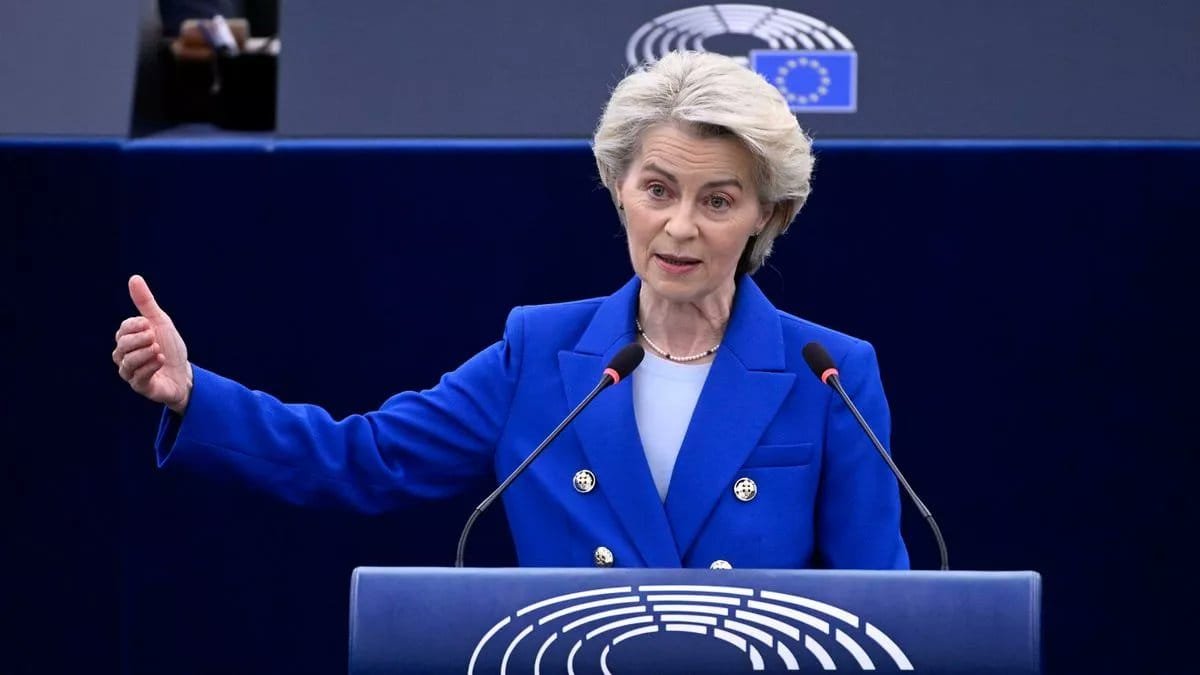European Commission President Ursula von der Leyen warned on Wednesday that the European Union must mount a broad and coordinated response to what she described as Russia’s “hybrid warfare” campaign, citing a series of recent drone intrusions, airspace violations and disinformation operations across Europe. Speaking to the European Parliament in Strasbourg, von der Leyen said these attacks are not isolated incidents but part of “a coherent and escalating campaign” whose objective she said is to unsettle EU citizens, weaken unity among member states, and diminish European support for Ukraine.
She stopped short of attributing every violation to Moscow, but asserted that it was clear Russia’s aim—through both overt and subtle tactics—is to sow division inside the EU. Von der Leyen said that Europe must shift from traditional defence postures toward enhanced resilience, deterrence and strategic coordination among all 27 member states, deploying tools that range beyond military power to cyber defences, counter-intelligence, and information campaigns.
In her address, she stressed that responding to hybrid threats means more than reacting to attacks: it involves preparing in advance. She urged EU leaders to adopt a new mindset, one that recognizes the evolving nature of threats which blend conventional, irregular, cyber and informational dimensions. The response, she said, must be both resolute and united—“we either watch the threats escalate, or we meet them with unity, deterrence and resolve.”
EU officials have already begun associating some of the recent incidents—such as unauthorised drone entries, airspace violations and sabotage—with Moscow. But von der Leyen implied that attributing actions is only part of the answer; more crucial is strengthening Europe’s ability to anticipate, deflect, and hold accountable those responsible.
The speech took place amid rising concern in capitals across the bloc, especially in states whose airspaces have recently been breached. Denmark, Poland, Germany and others have experienced incursions that many view as test-cases of Russia probing EU defences without provoking full military response. Experts say these hybrid actions risk eroding public trust in governments if not addressed firmly.





